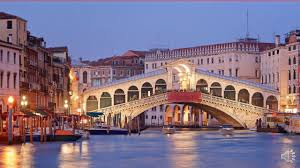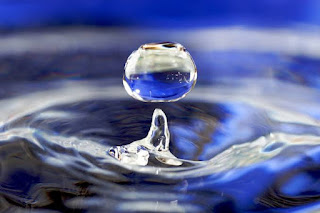CLIMATE CHANGE
Why is this really important? Well
read on and see why.
What is
climate change?
Well first
of all, climate is defined as the sum total of weather patterns that have been
recorded in a certain area for about 30 years.
Climate
change then is the strong and continued variance of the expected and
predictable weather conditions of that particular area.
In talking
about climate change, we can mean,
- a. Natural climate change which is caused by external things such as volcanic eruptions, changes in Earth’s orbit, changes in solar radiation etc
- b. Microclimate which is the climate of the immediate surroundingsof a lake, a huge river, a mountain and so on.
- c. Anthropogenic (manmade) climate change which is conventionally used to mean global warming. To be clear though, greenhouse gases cause global warming (the warming of the planet) which causes climate to change.
In this blog, we will talk about the last one which is by
far the one with the most implications.
Fossil fuels,the bane of the industrial age, basically power
the world’s economy. These fuels are mined from the Earth’s belly. Fossil fuels are
also the single biggest threat to life as we know it.
What exactly are fossil fuels? About 300 million years ago, during the Carboniferous
period, huge forests colonized most of the planet’s surface. As they died
through anoxic processes (without oxygen), they sunk to the ground and were covered by layers
of mud. In the oceans, huge amounts of sea organisms also died and sunk to the
bottom where they were covered by the mud. Over millions of years, through the
process of sedimentary rock formation and by being exposed to heat and
pressure, the dead matter on land became coal and in the oceans it became crude
oil and natural gas.
 |
| A coal bed - image courtesy of elements unearthed |
Fossil fuels powered the Industrial Age which began in 1750 and
from then on, we have managed to build this world into what it is right now.
But alas, what we didn’t know, but now do,is that the more
we use fossil fuels,the more we threaten the existence of life in the planet as
we know it.
What do I mean?
Well, if you burn coal, or any other fossil fuel, it
produces carbon dioxide, a greenhouse gas. Carbon dioxide is the most dangerous
greenhouse gas so as to speak. In itself it is really not harmful, but you know
how the saying goes right? Too much of everything is poisonous. Co2 is used in
photosynthesis by plants to make food. So what is the big deal?
 |
| a smokestack emitting CO2 amongst other gases - image courtesy of huffington post |
Well the big deal is, carbon dioxide likes absorbing things.
Well, specifically, it likes absorbing heat. Trapping it. Preventing it from
escaping. Cruel thing it is. When solar radiation(sun rays) hit the earth, the
earth absorbs some of it and converts some into infra-red rays which it then
reflects into space. As these rays are
on their merry way out of the planet,they enter the atmosphere where they meet
an ever increasing layer (thanks to us) of carbon dioxide (and a few
compatriots). Carbon dioxide traps this escaping heat and thus warms up the
atmosphere.
Generally, this is what it is supposed to do. Life on earth
would be impossible as the planet would be too cold without this layer of GHG
gases which acts as a blanket . What’s the problem then? It is that human
beings are burning more and more fossil fuels which release more CO2 into the
air, causing more than normal heat absorption, which in turn warms the oceans,
melts glaciers etc.
How does this affect me you ask?
Well my good person, it
gets hotter, the seasons become erratic and unpredictable. It rains today,
shines tomorrow. It doesn’t rain in March but rains for two weeks in January.
We go for six months without proper rains. Rivers dry up, pastures get scarce,
animals, both domestic and wild starve to death, pastoralists clash with
farmers, humans invade game parks (human wildlife conflict) or vice versa,
livelihoods are destroyed, food security is hugely affected, people migrate
from one region to another seeking better climes (climate refugees) , security
itself is affected, poverty worsens , inequality especially gender inequality
is worsened etc. The cost of life goes up and generally life becomes more
difficult.
Or maybe your country or city is an island or in the coast.
Rising sea levels basically means you can say bye bye to it soon enough.
Do you find yourself somewhere in one of the above groups?
Other organisms are affected too. Biodiversity
loss(extinction and migration of species), coral bleaching.
So, how is this my fault? I am not an industry. True true.
Greenhouse gas emissions are classified into several major categories, fossil fuel
use and LULUCF, aerosol use. The one in Caps lock there means, land use, land
use changes and forestry.
The Western world is in category number one and most of the
developing world is in category two. Everyone participates in category three.
Let's focus on Africa. Most countries rely on agriculture as their number one economy driver
LULUCF , the term, as conventionally used means, changing forests to rangelands, rangelands to agricultural lands and agricultural lands to urban areas. It is the biggest contributor in greenhouse gas emissions in Kenya for example.
There are many ways farmers contribute to climate change. Burning of land before sowing seed releases carbon dioxide stored up in organic matter.
Changing from planting crops to keeping livestock accelerates methane emissions.
And as another independent point, burning the land kills useful micro oragnisms like Nitrogen fixing bacteria.
There are many ways farmers contribute to climate change. Burning of land before sowing seed releases carbon dioxide stored up in organic matter.
Changing from planting crops to keeping livestock accelerates methane emissions.
And as another independent point, burning the land kills useful micro oragnisms like Nitrogen fixing bacteria.
Category three is that we use air fresheners (personally I’ve
never understood this process. Why, for Pete’s sake do you need to freshen air,
it does that by itself and you are in fact polluting it the more) and also
refrigerants. Both these products contain gases known as hydro fluorocarbons
(HFCs) which are hundreds to thousands of times more potent than CO2. HFCs by
the way were invented to replace chlorofluorocarbons (CFCs) which were the
cause of yet another environmental problem (ozone layer depletion). So anyway,
last month, October 2016, everyone who is someone met in Kigali, Rwanda and
decided to phase away these gases and introduce new ones.
So far so good.
Let me add a tidbit of information. Why is carbon dioxide
the greenhouse gas of most consequence?
Because;
 |
| Carbon dioxide being emitted into the air. This gas has the most impact in man made climate change - image courtesy of inhabitat |
- a. CO2 amounts are by far the biggest in the composition of greenhouse gases.
- b. The gas has long atmospheric life (a century or thereabouts)
Lemme put that into perspective for you. The CO2 we emit
today from motor vehicles and power plants will continue to majorly influence
the climate our children and grandchildren experience in their lifetimes.
Imagine how it’ll be then.
Now,
The main problem with coming into a useful and effective
consensus in climate change issues is ECONOMY. No one wants to pay the price.
Unfortunately, the innocents suffer the most as usual.
This, my dear folks is
something we will tackle in the next blog post.
For now, for having been such good students, I declare
there’ll be no further lessons for the rest of the day. Think about what we
have learnt.
Class dismissed!




Comments
Post a Comment